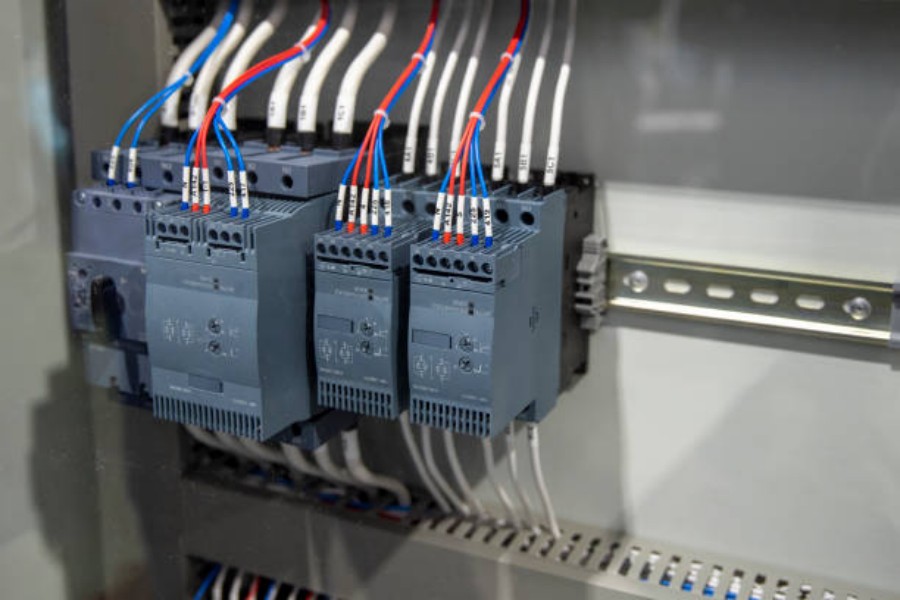Table of Contents

Introduction
hvac contactors are crucial components in heating, ventilation, and air conditioning systems. They are electrical devices that operate as switches to control the current flow in the system. The contactors help to activate, deactivate, or regulate the motor, compressor, or heating elements in the HVAC system. In this article, we will discuss the importance of HVAC contactors and how they work.
What are HVAC Contactors?
HVAC contactors are electromechanical switches composed of a coil and a set of contacts. Their primary function is to control the flow of high-voltage current through the compressor, blower motor, or heating elements in HVAC systems. The contactors are key components in the HVAC control system, ensuring that the right amount of electricity flows to the right component, ensuring efficient operation.
Different Types of HVAC Contactors
There are different types of HVAC contactors categorized according to their capacity, coil voltage, and number of poles. The commonly used contactors in HVAC systems include:
- Single Pole Contactors: switch on and off single components such as fan motors or compressors.
- Double Pole Contactors: switch on and off two independent loads or two single-phase components in an HVAC system.
- Three Pole Contactors: switch on and off three independent loads or phases in an HVAC system.
- Four Pole Contactors: used when larger HVAC systems require a higher power load switched on and off in multiple phases.
How Do HVAC Contactors Work?
The HVAC contactor's working mechanism is simple and efficient. The system's thermostat sends a 24V signal to the contactor's coil, which magnetically pulls down on the contactor's armature. Then, the armature mechanically pulls down on contacts 1 and 2, creating a bridge between the two contacts and completing the circuit. This step energizes the compressor, fan motor, or heating elements in the HVAC system, and the air conditioning cycle starts. When the set temperature is reached, the thermostat sends a signal to the contactor's coil, which releases the armature. Contacts 1 and 2 are no longer bridged, and the circuit is broken. The disconnection shuts down the power flow, and the HVAC system turns off.
Signs of Failing HVAC Contactors
It is vital to ensure that the contactors in an HVAC system are functioning correctly. Below are some signs that might indicate failing contactors:
- Excessively loud humming coming from the HVAC unit indicating a contactor stuck in the "on" position, leading to burnout.
- Frozen HVAC system due to a contactor getting stuck in an "on" position, which can damage the compressor or pump.
- Intermittent cooling or heating, indicating a weak contactor.
- Complete HVAC system failure, indicating a failed contactor.
Choosing the Right HVAC Contactors
Choosing the right HVAC contactor will depend on the unit's specifications and electrical requirements. It is essential to choose a contactor that is compatible with the system's wiring and can handle the electrical load. A qualified HVAC technician can advise on the right contactor to use and perform the installation and set-up.
Maintenance of HVAC Contactors
Regular maintenance ensures the proper functioning of the HVAC contactors. Dust, debris, and corrosion can accumulate on the contacts, leading to poor electrical conductivity, overheating, and system failure. Maintenance activities include:
- Cleaning the contacts using a clean, dry cloth or a contact cleaning solution.
- Inspection for corrosion, pitting, or arcing.
- Testing for correct voltage and electrical resistance using a digital multimeter.
- Replacing contactors if they show signs of damage or inefficiency during inspections.
Conclusion
HVAC contactors are essential components in the proper functioning of heating and cooling systems. They ensure the efficient and consistent flow of electrical power to the different components in the system, ensuring comfortable temperatures in indoor spaces. Regular maintenance and timely replacement of failing contactors are crucial in the effective management of HVAC systems.
